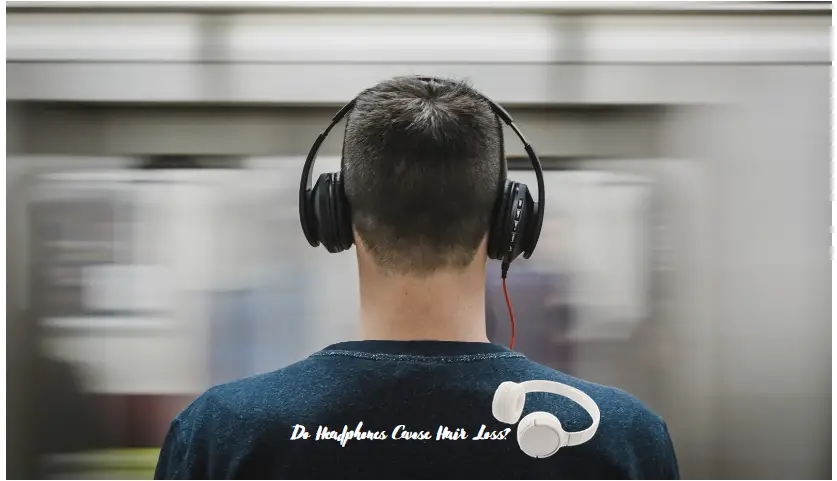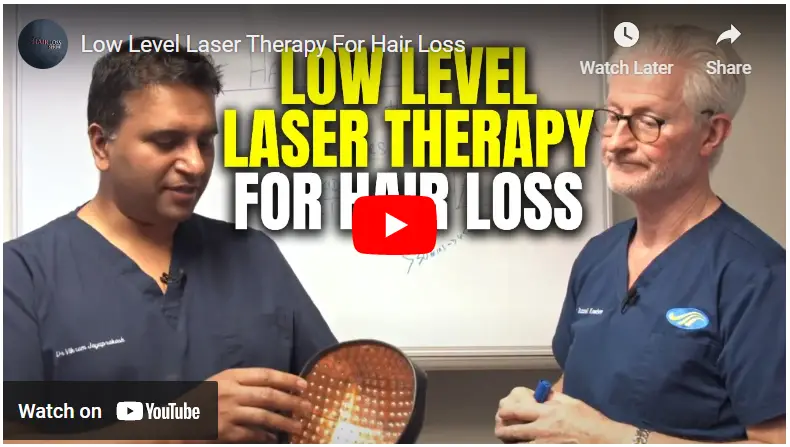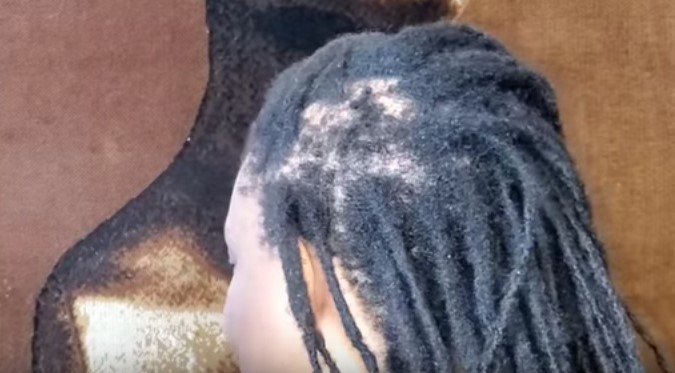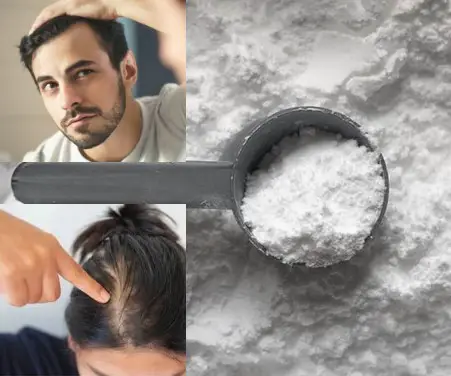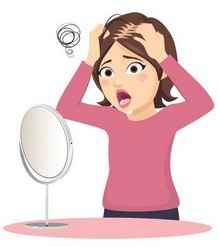Do headphones cause hair loss? Uncover the potential link, learn about prevention methods, and explore treatments for hair loss in our comprehensive guide.
In the world of technology, headphones have become an essential accessory for most of us. Whether it’s for music, gaming, or work, we often find ourselves reaching for our trusty headphones. But have you ever stopped to wonder, do headphones cause hair loss? It might seem like a strange question, but it’s one that has been circulating on the internet and causing concern among headphone users.
In this comprehensive guide, we will delve into the science behind hair loss, explore the potential connection between headphones and hair loss, and provide practical tips on how to prevent and treat hair loss from headphones. We’ll also debunk some common hair loss myths and provide answers to frequently asked questions about headphones and hair loss.
Our goal is to provide you with accurate, up-to-date information so you can make informed decisions about your hair health. So, let’s dive in and find out if your headphones are really causing your hair to fall out.
Before we proceed, it’s important to understand that hair loss can be caused by a variety of factors, including genetics, hormonal changes, stress, and certain medical conditions. However, certain lifestyle habits can also contribute to hair loss, and this is where headphones come into the picture.
There’s a condition called traction alopecia, which is hair loss caused by pulling on the hair. This can occur when headphones are worn for extended periods, especially if they are tight or heavy. But don’t panic just yet. While it’s true that headphones could potentially cause hair loss, it’s not a guaranteed outcome and there are ways to prevent it.
In the following sections, we will delve deeper into the topic, providing you with a comprehensive understanding of the potential link between headphones and hair loss. We’ll also share tips on how to prevent hair damage from wearing headphones, treatment options for hair loss, and the role of lifestyle in maintaining hair health.
So, whether you’re a music enthusiast, a gaming aficionado, or someone who uses headphones for work, this guide is for you. Read on to learn more about the impact of headphones on hair health and what you can do to protect your locks.
Key Takeaways
- There is no definitive scientific evidence linking headphone use to hair loss, but the potential connection cannot be completely ruled out due to the possibility of traction alopecia.
- Prevention is key. Choose the right headphones, take regular breaks, avoid tight headbands, keep your headphones clean, and maintain a healthy scalp.
- If you’re experiencing hair loss, consult with a healthcare professional or a trichologist. They can help determine the underlying cause and recommend appropriate treatment options.
- A holistic approach to hair health, including a balanced diet, regular exercise, stress management, and good hair care practices, can help prevent and treat hair loss.
Stay tuned for a detailed analysis and practical advice on the topic. And remember, while it’s important to stay informed, it’s equally important not to let fear dictate your choices. As with many things in life, moderation, and balance are key.
Continue reading to understand the science behind hair loss.
The Science Behind Hair Loss
Hair loss is a common concern for many people, and it can be caused by a variety of factors. Understanding the science behind hair loss is the first step in addressing this issue.
Our hair grows from follicles, tiny pockets in the skin, and goes through a cycle of growth, rest, and shedding. On average, we lose about 50 to 100 hairs a day, which is normal. However, when the balance is disrupted, and hair falls out faster than it grows, we experience hair loss.
Hair loss can be caused by genetics, hormonal changes, stress, certain medical conditions, and even lifestyle habits. One such habit that has been under scrutiny recently is the use of headphones. But can headphones cause hair loss? To answer this question, we need to understand a specific type of hair loss called traction alopecia.
Traction alopecia is hair loss caused by pulling on the hair. This can occur when hairstyles or accessories exert a constant pull on the hair roots. Over time, this tension can damage the hair follicles and lead to hair loss.
Now, you might be wondering, do headphones cause traction alopecia? The answer is not straightforward. While it’s possible for headphones to cause hair loss if they are worn tightly for extended periods, it’s not a common cause of hair loss. However, if you’re experiencing hair loss and you frequently wear tight or heavy headphones, it might be worth considering this potential connection.
Can Headphones Cause Hair Loss?
The question of whether headphones can cause hair loss has been a topic of debate. While there is no definitive scientific evidence linking headphone use to hair loss, the potential connection cannot be completely ruled out.
The main concern is that wearing headphones, especially those that are tight or heavy, could potentially cause traction alopecia. This is because headphones, like any other accessory worn on the head, can exert pressure on the scalp and hair follicles. Over time, this pressure can lead to damage and hair loss.
However, it’s important to note that not all headphone users will experience hair loss. Factors such as the type of headphones, how tightly they are worn, the duration of use, and individual susceptibility to hair loss can all play a role.
For example, over-ear headphones that sit on the head could potentially cause more pressure on the scalp compared to in-ear headphones. Similarly, wearing headphones for extended periods without giving your scalp a break could increase the risk of hair loss.
But before you throw away your headphones, remember that moderation is key. Using headphones responsibly and taking regular breaks can help mitigate the potential risk of hair loss.
If you’re concerned about hair loss due to headphone use, it might be worth exploring other potential causes of hair loss.
Case Studies and Research on Headphones and Hair Loss
Despite the ongoing debate, there is a lack of scientific research specifically investigating the link between headphones and hair loss. Most of the information available is anecdotal, based on personal experiences shared online.
Some users have reported noticing hair thinning or bald spots in areas where their headphones rest. However, these reports are not conclusive evidence of a link between headphone use and hair loss.
It’s also worth noting that hair loss can be a complex issue with multiple contributing factors. Therefore, if you’re experiencing hair loss, it’s important to consult with a healthcare professional or a trichologist. They can help determine the underlying cause of your hair loss and recommend appropriate treatment options.
Other Health Risks Associated with Wearing Headphones
While the potential link between headphones and hair loss is still under debate, there are other health risks associated with wearing headphones that are well-documented.
One of the main concerns is hearing loss. Prolonged exposure to loud music or sounds through headphones can lead to noise-induced hearing loss. This is a significant concern, especially among young people who often listen to music at high volumes.
Other potential risks include ear infections (if headphones are shared), increased ear wax production, and even safety issues (if headphones are used while crossing roads or driving).
Therefore, while it’s important to consider the potential impact of headphones on hair health, it’s equally important to be aware of these other health risks.
In the next section, we will share tips on how to prevent hair damage from wearing headphones, explore treatment options for hair loss, and discuss the role of lifestyle in maintaining hair health.
Continue reading to learn how to prevent hair damage from wearing headphones.
How to Prevent Hair Damage from Wearing Headphones
Preventing hair damage from headphones is possible with a few simple steps. Here are some tips to help you protect your hair while enjoying your favorite tunes:
- Choose the Right Headphones: Not all headphones are created equal. Over-ear headphones can potentially cause more pressure on the scalp compared to in-ear headphones. If you’re concerned about hair loss, consider switching to in-ear headphones or lightweight over-ear headphones.
- Take Regular Breaks: Wearing headphones for extended periods can exert pressure on your scalp. Make sure to take regular breaks to give your scalp a rest.
- Avoid Tight Headbands: If your headphones have a tight headband, it could potentially cause traction alopecia. Opt for headphones with adjustable headbands and ensure they are not too tight.
- Keep Your Headphones Clean: Dirty headphones can lead to scalp infections, which can exacerbate hair loss. Make sure to clean your headphones regularly.
- Maintain a Healthy Scalp: A healthy scalp is essential for healthy hair. Make sure to keep your scalp clean and well-nourished.
Remember, these tips are not just for those who are experiencing hair loss. They are good practices for anyone who uses headphones regularly.
Treatment Options for Hair Loss
If you’re experiencing hair loss, it’s important to consult with a healthcare professional or a trichologist. They can help determine the underlying cause of your hair loss and recommend appropriate treatment options.
Treatment for hair loss can vary depending on the cause. For example, if your hair loss is due to traction alopecia caused by wearing headphones, the first step would be to stop or reduce the use of headphones. In some cases, hair may regrow on its own once the pressure on the scalp is relieved.
Other treatment options for hair loss include:
- Medications: Certain medications can help slow hair loss and even promote hair regrowth. These include minoxidil (Rogaine) and finasteride (Propecia).
- Hair Transplant Surgery: This is a more permanent solution where hair follicles are transplanted from one part of the scalp to the balding areas.
- Lifestyle Changes: A balanced diet, regular exercise, and stress management can all contribute to healthier hair.
Remember, it’s important to consult with a healthcare professional before starting any treatment for hair loss.
The Role of Lifestyle in Hair Health
Your lifestyle can have a significant impact on your hair health. A balanced diet, regular exercise, adequate sleep, and stress management can all contribute to healthier hair.
Here are some lifestyle tips for maintaining hair health:
- Eat a Balanced Diet: Your hair needs nutrients to grow and stay healthy. Make sure to include plenty of fruits, vegetables, lean proteins, and healthy fats in your diet.
- Exercise Regularly: Regular exercise can help improve circulation, including to your scalp, promoting healthier hair.
- Manage Stress: High stress levels can contribute to hair loss. Techniques such as meditation, yoga, and deep breathing can help manage stress.
- Avoid Damaging Hair Practices: This includes avoiding tight hairstyles, harsh hair products, and excessive heat styling.
Remember, while headphones can potentially contribute to hair loss, they are just one piece of the puzzle. A holistic approach to hair health can help prevent and treat hair loss.
In the next section, we will answer some frequently asked questions about headphones and hair loss.
Continue reading to get answers to frequently asked questions about headphones and hair loss.
Frequently Asked Questions
In this section, we will answer some of the most frequently asked questions about headphones and hair loss. These questions are based on common queries and concerns about this topic.
1. Do headphones cause hair loss?
While there is no definitive scientific evidence linking headphone use to hair loss, the potential connection cannot be completely ruled out. The main concern is that wearing headphones, especially those that are tight or heavy, could potentially cause a condition called traction alopecia. This is hair loss caused by pulling on the hair, which can occur when headphones are worn for extended periods. However, not all headphone users will experience hair loss, and factors such as the type of headphones, how tightly they are worn, the duration of use, and individual susceptibility to hair loss can all play a role.
2. Can wearing headphones cause baldness?
Baldness is typically caused by genetics, hormonal changes, or certain medical conditions. While wearing headphones could potentially contribute to hair loss through traction alopecia, it’s not a common cause of baldness. However, if you’re experiencing hair loss and you frequently wear tight or heavy headphones, it might be worth considering this potential connection.
3. How can I prevent hair loss from headphones?
Preventing hair loss from headphones is possible with a few simple steps. These include choosing the right headphones, taking regular breaks, avoiding tight headbands, keeping your headphones clean, and maintaining a healthy scalp. Remember, these tips are not just for those who are experiencing hair loss. They are good practices for anyone who uses headphones regularly.
4. Are there any other health risks associated with wearing headphones?
Yes, there are other health risks associated with wearing headphones that are well-documented. One of the main concerns is hearing loss. Prolonged exposure to loud music or sounds through headphones can lead to noise-induced hearing loss. Other potential risks include ear infections (if headphones are shared), increased ear wax production, and even safety issues (if headphones are used while crossing roads or driving).
5. What should I do if I’m experiencing hair loss from headphones?
If you’re experiencing hair loss and you suspect it’s due to headphone use, the first step is to stop or reduce the use of headphones. It might also be helpful to switch to in-ear headphones or lightweight over-ear headphones. If your hair loss continues, it’s important to consult with a healthcare professional or a trichologist. They can help determine the underlying cause of your hair loss and recommend appropriate treatment options.
In conclusion, while headphones can potentially contribute to hair loss, they are just one piece of the puzzle. A holistic approach to hair health, including a balanced diet, regular exercise, stress management, and good hair care practices, can help prevent and treat hair loss.
For more information on hair health, check out these related articles:
Conclusion
In conclusion, while there is no definitive scientific evidence linking headphone use to hair loss, the potential connection cannot be completely ruled out. The key is moderation and responsible use. By choosing the right headphones, taking regular breaks, and maintaining a healthy scalp, you can enjoy your favorite tunes without worrying about hair loss.
Remember, hair health is a holistic issue, and a balanced diet, regular exercise, stress management, and good hair care practices are all essential for maintaining healthy hair. For more information on hair health, check out our comprehensive guide on how to prevent and treat hair loss.
Keep rocking to your favorite tunes, but remember to give your hair the care it deserves!
Sources:
- AI Powered Bald Filter Online 2024: See Yourself with No Hair! - January 19, 2024
- Harklinikken Bad Reviews 2024: Analyzing Negative Feedbacks - January 18, 2024
- How to Get the Alex Eubank Hair | Step-By-Step Tutorial 2024 - January 18, 2024
